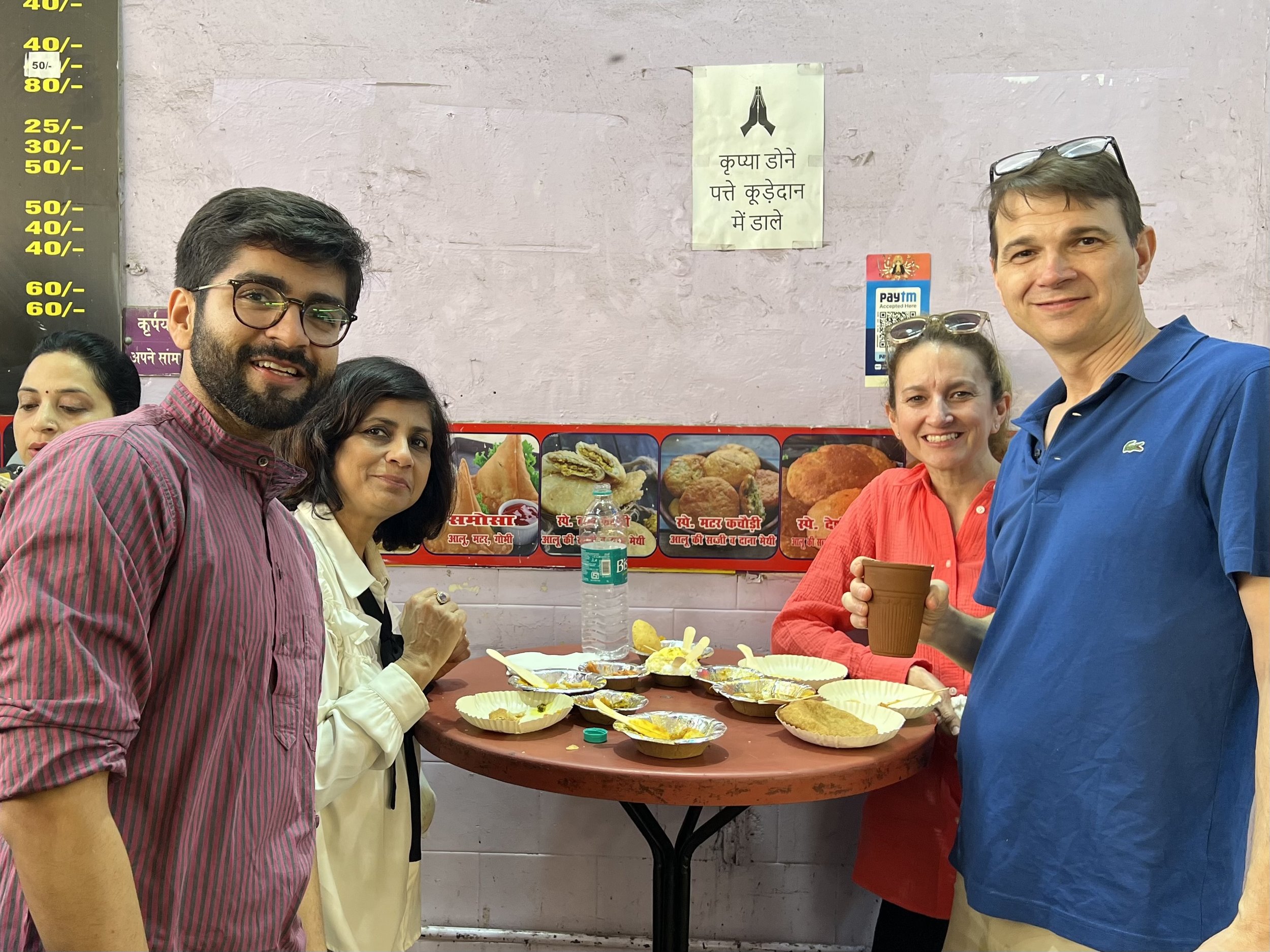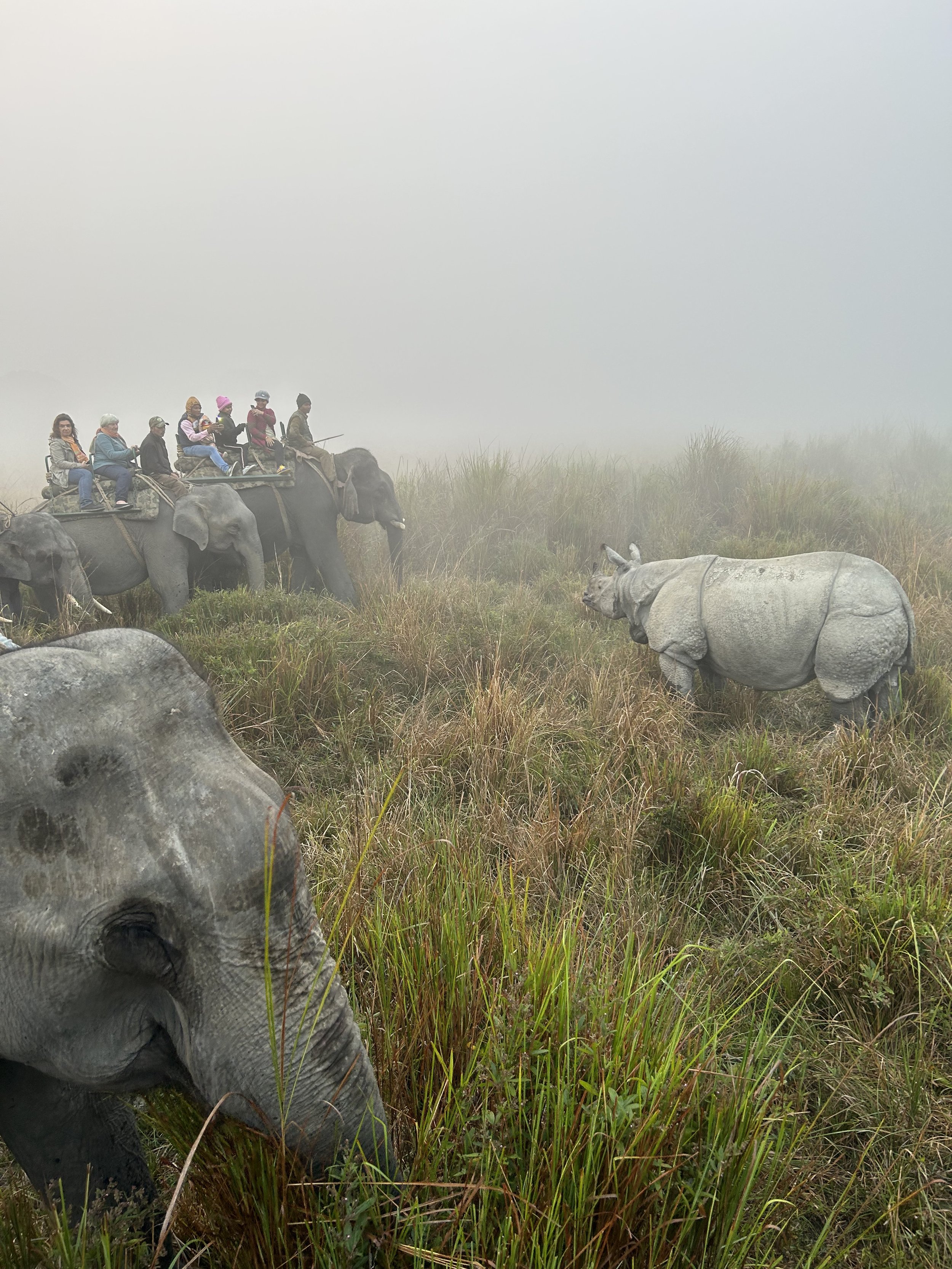Adventures in India
iLegis’ First Travel Blog by Warren Burke of the iLegis Organizers Committee
Having served among the organizers of the International Conference on Legislation and Law Reform since its inception, one aspect of our conference which I particularly appreciate is the unique global community which it fosters. Not everyone is willing to travel around the world to listen to lectures on legislation and law reform. It takes a special sort. Though I shudder to speculate as to how my irreproachably cool teenage daughter might characterize our sort, I like to think of us as adventurous intellectuals. We’re the Indiana Jones set of legislative professionals and academics. Disagree if you must, but please know who has your back the next time you fall into a snake’s pit of archaic legislative style and misplaced commas.
That’s why I thought of you during my most recent adventure serving as a Fulbright specialist in India. It was a long journey, and I don’t mean the 17-hour flight between Delhi and Newark. I mean the four years it took to complete my project, starting in 2019 when I added myself to the roster of Fulbright specialists. Though I had listed myself as an expert in legislative drafting, the project announcement which caught my eye concerned public health. National Law University Odisha (NLUO) sought to be the first law school in India to offer a class on public health law. Having specialized for two decades in drafting public health legislation in the United States House of Representatives, I decided to lean into my identity as a public health attorney.
Little did I know the world was on the brink of what would prove to be the most challenging public health emergency in a century. By March 2020, COVID-19 had reared its ugly head. That month, the Fulbright Program shut down. It would prove to be only the first of many delays. In January 2022, I had my bag packed and was 36 hours from take off when the Fulbright Program shut down again, this time because of Omicron.
Thankfully, neither NLUO nor the Fulbright Program gave up on my project. Finally, I made it to India in January 2023. By then, NLUO had already developed a semester-long public health law class, and my project had morphed into improving that class. I taught for five weeks. My students were sixth-semester law students pursuing combined B.A. and LL.B. degrees over five years. I was privileged to teach with Professor Rishika Khare, an expert on constitutional and administrative law. While I focused on general principles and drew heavily from United States statutes and caselaw, Professor Khare offered insights from an Indian perspective.
Warren with the Vice Chancellor and faculty of National Law University Odisha
I was a long way from home. NLUO sits between two giant rivers which resemble the Sahara Desert in winter—massive sand dunes—but become raging torrents in monsoon season flowing into the Bay of Bengal. Established in 2009, NLUO was built on the native habitat of king cobras and other venomous snakes, no small hazard in a state where each year over 1,000 people die from snakebites. The students all live on campus in hostels and are careful to lock their windows lest the monkeys bust in and cause chaos.
Despite how foreign everything seemed, I soon felt at home. Everyone was extraordinarily welcoming. Wherever I went, people greeted me with a smile and namaste. Many wanted to chat, even the cleaning staff who spoke only Oriya, the local language. When I wasn’t teaching, I enjoyed the company of my colleagues in the faculty lounge drinking tea or coffee. On my daughter’s birthday, my class sang a rousing rendition of “Happy Birthday.” On leaving, I posted a reel to the Cheers theme song “Where Everybody Knows Your Name.”
By virtue of being a legislative lawyer, my approach to teaching was distinct from that of other faculty. The difference was, I emphasized policy formulation and analysis, skills which are more relevant in a legislative setting than a courtroom. For my final assignment, I asked my students to form groups, identify a public health problem, formulate a policy to address that problem, and present that policy to the class with the details necessary to translate the policy into operative text. My students were enthusiastic about the exercise (a little nervous, too) and crafted policies to improve hospital hygiene, create separate prisons for women, legalize medical marijuana, discourage open defecation, and require a 5-star label to indicate the degree to which foods are healthy.
Admittedly, half of my students had signed up for my class only because the intellectual property law class was full. Most wanted to pursue a career in corporate law at a big firm in Delhi. By the end of the class, I am proud to say at least one student had decided to become a public health attorney, and all seemed to have a greater understanding and appreciation for public health law and the broader skills of policy formulation and analysis.
Warren, his wife Dr. Monique Burke, fellow conference organizer Kashish Aneja, and Kashish’s Mom Dr. Kavita Aneja enjoying Delhi street food
After completing my project, I did not head straight for home, but spent another week exploring. Having taken a trip to Assam where I rode an elephant in search of rhinoceroses and Nagaland where I hiked remote Dzukou Valley, I was eager to see more. I met up with my wife in Delhi where Kashish Aneja, a fellow organizer of our conference, proved to be the world’s best host. Together with Kashish and his Mom, my wife and I explored Old Delhi, rode in rickshaws, ate delicious street food, shopped for sarees, and toured ancient architecture, including a barefoot climb to the top of a minaret.
Which got me thinking about the true value of our conference. What a pleasure it was to be able to travel to the other side of the world and be welcomed so warmly. Where I should’ve been a stranger, I was family. Why? Because I belong to the unique culture of legislative adventurers and intellectuals with whom I have so much in common despite our vast differences in culture and geography. I am grateful to the International Conference on Legislation and Law Reform for strengthening this community and look forward to our next webinar this June, our next conference in 2024, and our next adventure together!
Kaziranga National Park, Assam



